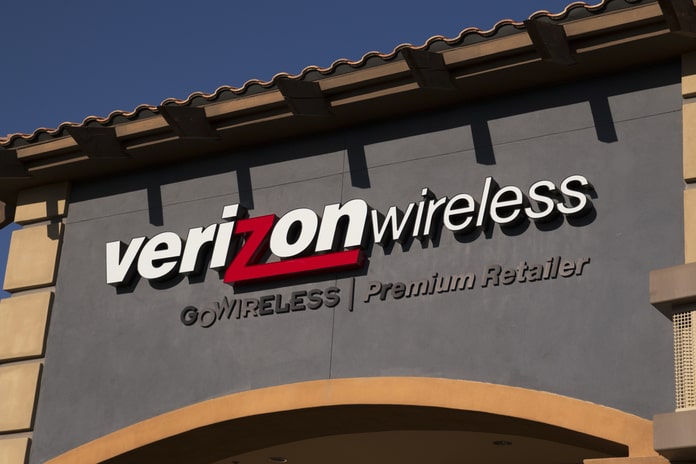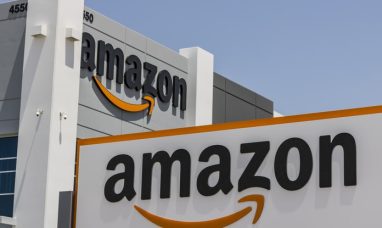Verizon Communications Inc. (NYSE:VZ) announced its $20 billion acquisition of Frontier Communications, a move aimed at significantly strengthening its fiber network and expanding its presence in the connected smart devices and artificial intelligence (AI) sectors. The deal, which is expected to close in 18 months pending shareholder approval, highlights Verizon’s strategic focus on enhancing its fiber capabilities to better compete in the evolving telecommunications landscape.
Verizon’s Strategic Move to Strengthen Its Fiber Network
Verizon’s acquisition of Frontier Communications (NASDAQ:FYBR) is driven by the company’s desire to bolster its fiber infrastructure. Frontier, headquartered in Dallas, has been focusing on expanding and upgrading its fiber network for the past four years, with over $4.1 billion invested in these efforts. As a result, Frontier now generates more than half of its revenue from fiber products and has 2.2 million fiber subscribers across 25 states.
Verizon, which has around 7.4 million Fios connections in nine states and Washington, D.C., plans to use Frontier’s assets to expand its fiber coverage. Frontier currently boasts 7.2 million fiber locations and aims to add 2.8 million more by the end of 2026. With this acquisition, Verizon will be able to tap into Frontier’s established fiber presence, further enhancing its ability to deliver premium internet services.
Hans Vestberg, Verizon’s Chairman and CEO, called the acquisition “a strategic fit,” stating that it builds on Verizon’s existing leadership in fiber technology. “This deal will allow us to become more competitive in more markets throughout the United States and deliver premium offerings to millions more customers across a combined fiber network,” Vestberg said.
Frontier’s Fiber Expansion: Key to Verizon’s Growth
Frontier’s fiber network growth has been a key factor in Verizon’s decision to make this acquisition. While Frontier’s fiber network currently covers only 3.5% of the U.S., its ongoing expansion plan is expected to increase its coverage to approximately 10 million fiber locations by 2026. Verizon sees this as an opportunity to expand its reach beyond its existing markets, giving the company a stronger competitive edge against other telecom giants in the rapidly growing fiber market.
The acquisition also aligns with Verizon’s broader ambitions to lead in AI-driven smart devices and connected technologies. By expanding its fiber footprint, Verizon can provide better infrastructure for homes and businesses to support a range of AI-powered devices and Internet of Things (IoT) applications. This move is part of Verizon’s long-term strategy to diversify beyond wireless services and become a more comprehensive technology provider.
Skepticism Over Verizon’s Fiber Strategy
Despite the potential benefits, there are concerns about the impact of the Verizon Frontier acquisition. Analysts like Craig Moffett of MoffettNathanson Research have pointed out that even with the acquisition, Verizon’s total fiber coverage will still only reach about 17% of the U.S. population. Moffett expressed doubts about whether this level of coverage is enough to support Verizon’s goal of becoming a national fiber leader.
“A fiber footprint covering 17% of the U.S. is nowhere near large enough to be the basis of a strategy for a national wireless operator,” Moffett noted. Critics argue that Verizon may need to further invest in expanding its fiber reach or pursue additional acquisitions to solidify its presence in this competitive market.
Financial Details and Market Reactions
Verizon will pay $38.50 per share for Frontier, a premium price reflecting its ambition to dominate the fiber market. The deal values Frontier at approximately $20 billion, and it still requires the approval of Frontier’s shareholders. The companies expect the acquisition to close in 18 months.
The market reaction to the deal has been mixed. Following the announcement, Frontier’s stock, which had surged nearly 40% after initial reports of the acquisition, fell by 9% on Thursday. Verizon’s stock also dipped slightly, reflecting investor caution over the scale of the investment and the challenges ahead.
The Road Ahead for Verizon and Frontier
If approved, Verizon’s acquisition of Frontier will mark a significant step in its quest to lead in the fiber and AI-connected technologies sectors. However, the company will need to address concerns about the limited reach of its combined fiber networks and potentially invest further to achieve its national ambitions.
For Frontier, the acquisition is an opportunity to leverage Verizon’s resources and expertise to continue expanding its fiber network and improve its financial stability. As the deal progresses, both companies will likely focus on addressing these challenges while exploring new growth opportunities in the ever-evolving telecom landscape.
In the long term, Verizon’s strategic play in acquiring Frontier could position it as a stronger player in both the fiber network and smart technology markets, but its success will depend on how effectively the company integrates Frontier’s assets and manages its expanded footprint.
Featured Image: Megapixl© Imdan









